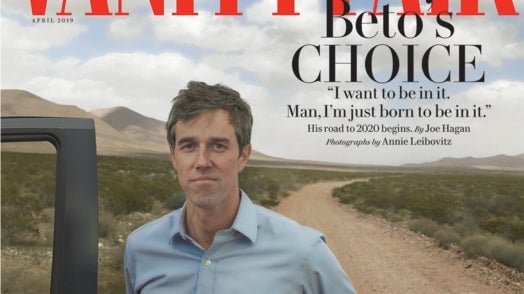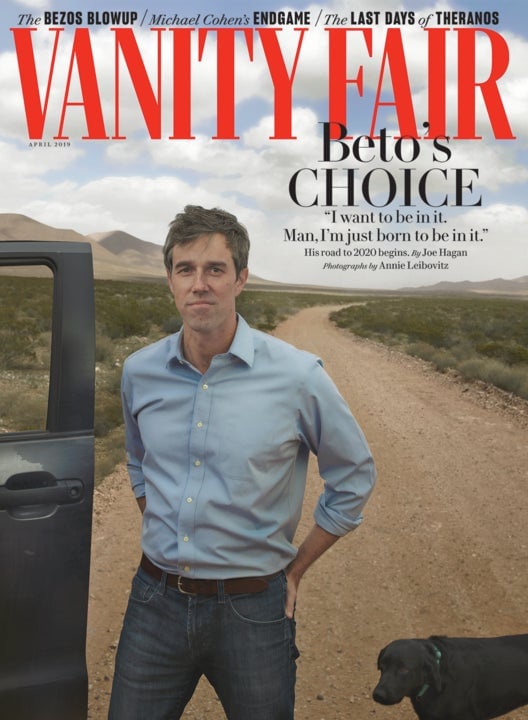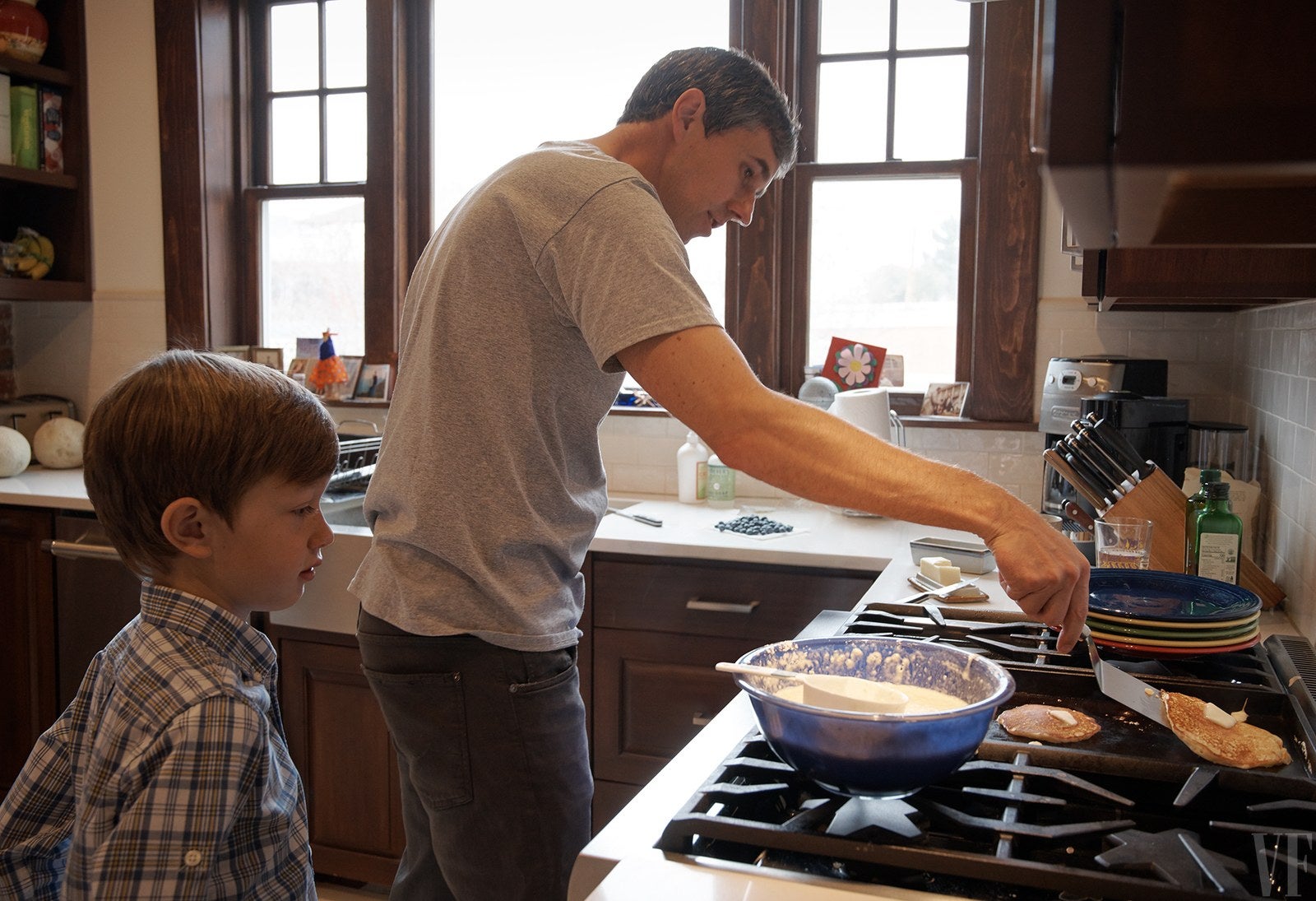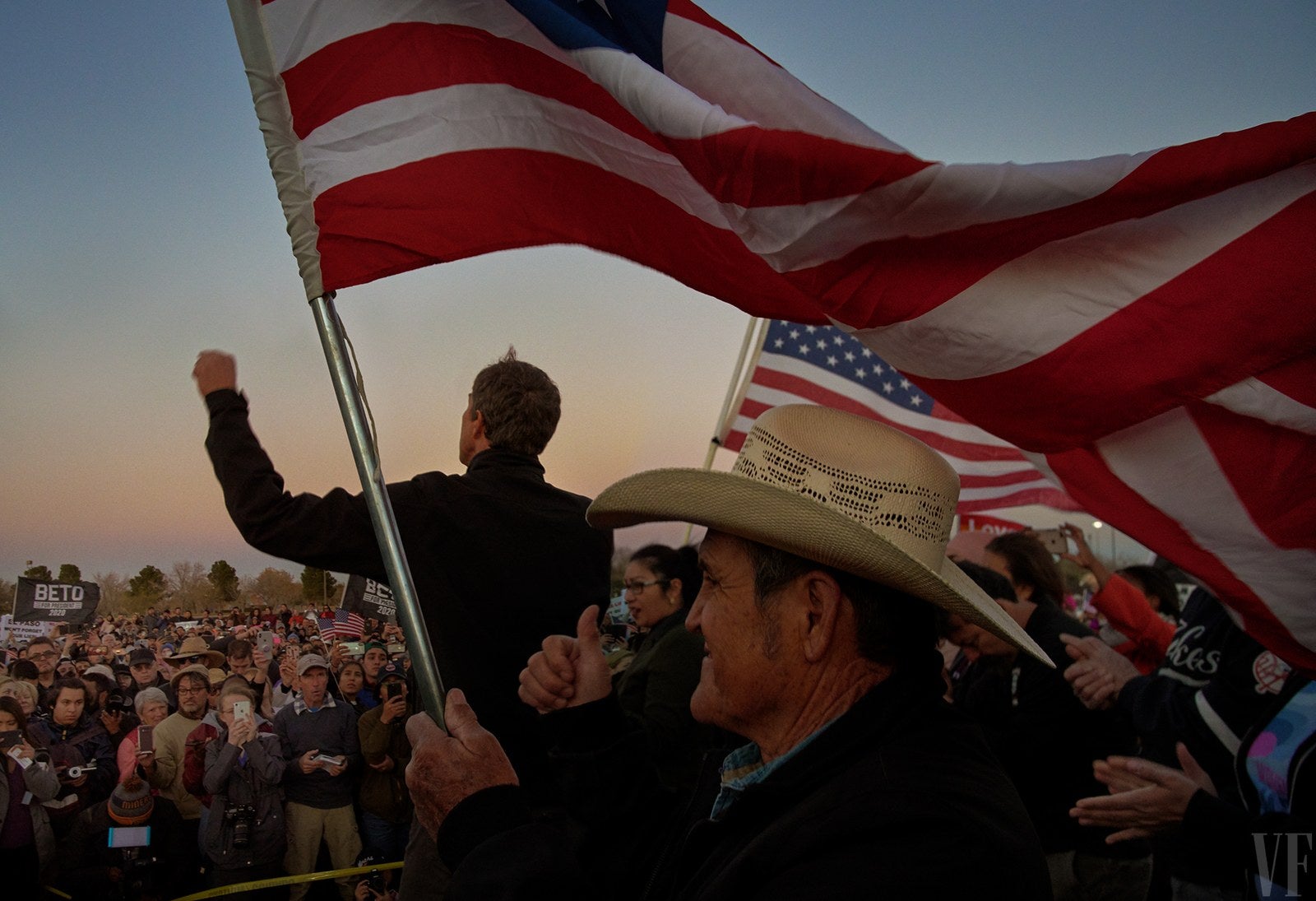What Annie Leibovitz’s slick, boring Beto photoshoot tells us about the candidate
As you’ve probably heard, Beto O’Rourke, a former Texas representative and failed US Senate candidate, formally announced his presidential campaign on Tuesday (March 13), informing a local Texas TV station of his intention to run via text message.


As you’ve probably heard, Beto O’Rourke, a former Texas representative and failed US Senate candidate, formally announced his presidential campaign on Tuesday (March 13), informing a local Texas TV station of his intention to run via text message.
While his primary opponents have released detailed policy proposals, O’Rourke has been criticized for banking on his diehard fans and his previous campaign’s excitement and ability to fundraise, while steering clear of any defined ideology, or articulating a compelling reason to run.

What does a campaign built on pure charisma look like? Look no further than the cover of Vanity Fair. Perfectly orchestrated for his campaign announcement, O’Rourke appears on the magazine’s cover, shot by Annie Leibovitz, outside his truck on a dirt road, his dog Artemis glowering plaintively behind him.
The journalist Joe Hagan, who wrote the story for the magazine, tweeted that he had been researching the story for two months before casually approaching O’Rourke on his front porch one day. The ensuing profile traces O’Rourke’s history in Texas and New York City, his relationship with his father and (his father’s political legacy) and his own evolution from burnout musician to politician. It also features the most, in my opinion, retouched photo of a man driving a Toyota I’ve ever seen.
Leibovitz is one of the preeminent portraitists of public figures working today, but she made her bones in the 1970’s as Rolling Stone’s chief photographer, touring with musicians and catching behind-the-scenes moments of rock and roll’s golden age. You’d think the photographer who shot iconic images of Mick Jagger would be the perfect match for O’Rourke, who played in numerous bands as a young man and cites the Washington DC punk legend Ian Mackaye as a central inspiration in his life.
So it’s a little disappointing that her shoot with this political rockstar was so… boring. Leibovitz shows O’Rourke sitting on the couch with one of his sons (Artemis balefully glaring from between his legs). We see him making pancakes, in what could almost be a stock image of an “involved dad.”

Cut to the basement, where he’s jamming with his children in the “music room.” Later, the whole family awkwardly hugs while on a hike.
Some also noted that O’Rourke’s posture and outfit were strikingly similar to a 1981 Time magazine cover of soon-to-be-president Ronald Reagan. While their politics are different, O’Rourke is running a similar campaign, positioning himself as the humble everyman, and appealing to a warm, idealized version of American bipartisanship.
The images lack Leibovitz’s trademark flawless high-production lighting; most appear shot with entirely natural light. Instead of highlighting O’Rourke’s youthful dynamism, he looks like a pretty normal suburban dad on a Sunday afternoon—then a pretty normal politician at a flag-waving rally.

It’s no fault of Leibovitz’s that her subject didn’t do anything particularly interesting, but in a political environment when Democrats are more eager than ever to find a galvanizing figurehead to unite behind, these photos do little to make the case for O’Rourke as the person to lead that fight, other than showcase his ability to look traditionally presidential. (That is, a square-jawed young white guy in a button-down shirt, unlike much of the rest of the Democratic field.)
This ostentatiously bland photo series is an odd fit for a politician who made his name by bucking the rigid strictures of campaigning. Like an Instagram influencer, he has already endeared himself to millions of voters (and their wallets) with viral videos and over-sharing social media posts. He has liberally streamed his life over Facebook Live, and notoriously even Instagrammed a dentist visit.
For a candidate who built a national profile as a scrappy upstart, it’s a little strange that O’Rourke used his moment in a glossy Annie Leibovitz photo spread to remind us of his normalness.
If this story and its accompanying photo spread reveal anything, it’s that O’Rourke sees his best path to the presidency in being a friendly tonic to president Trump’s acidic, flamboyant billionaire persona. Perhaps that’s why the Beto that Annie Leibovitz met was just the friendly, boring dad next door.